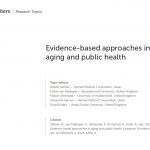Higher Education and Research Bill: the Bill passed its third reading in the House of Lords this week with little fanfare. An amendment relating to the ‘transparency duty’ (publishing further information on applicants’ backgrounds for better WP policy targeting and transparent admissions) was moved but withdrawn. This followed reassurance from the government that they will require the Office for Students to consult on the transparency duty. Eight minor government amendments were agreed, full details can be read in Hansard. The Bill will reappear in the Commons after the Easter recess, when as noted in last week’s update, the opposition and cross bench amendments are expected to be removed.
Brexit: The Commons Select Committee for Exiting the EU released their report The Government’s negotiating objective: the White Paper. Wonkhe report that not all members of the committee agreed with the conclusions in the report. Pages 68-71 cover science and research and reiterate previous calls from the sector for the immigration system to support researchers and students and for the UK to continue to participate in Horizon 2020.
Tuition Fees: In a non-binding debate in the House of Lords, Lord Stevenson of Balmacara (Labour) moved that the House of Lords regrets the 2016 changes to the tuition fee regulations and loan conditions which have worsened circumstances for some students, particularly WP and part time students. Lord Stevenson stated it is “virtually impossible to challenge what the Government are doing” and suggested that fee increases, the ending of maintenance grants, and introduction of income-contingent tax liabilities had not achieved what they had set out to do for the public purse whilst burdening students with ever-increasing debts. He asked for clarification on the “huge gap” in public finances the system was creating and explained that his motion would call on the Government to report annually to Parliament on the impact on the economy of increasing graduate debt, provide estimates of payback rates and an estimate of the annual cost to the Exchequer of the present system. Stevenson and other Lords also criticised the linking of fees to the TEF.
The voting was close and the motion to regret was agreed by the Lords.
Speaking for the Government Viscount Younger of Leckie expressed his disappointment about the vote and stressed that the Government’s policy intention remained to link fees to the quality of provision via the teaching excellence framework.
A second motion to regret has been tabled for Wed 26 April by Lord Clark of Windermere to move that the House of Lords regrets the introduction of tuition fees and removal of bursaries for NHS students.
Science Communication: The Science and Technology select committee have reported on their inquiry into science communication. The report notes that public interest in science is high and rising yet most people still lack a personal connection or understanding of science, and there is low trust in science journalism. The committee report concurs with the Stern recommendation for REF to synonymise impact with associated policy-making. Furthermore, the Government has abandoned the intended anti-lobbying clause in government contracts and grants because for research grants it sent the wrong message, discouraging instead of encouraging the widest and fullest possible science communication and engagement.
The full report examines communication of science, including through social media and reaching young people. It also tackles the misrepresentation of scientific results in the media. Highlighting inaccurate interpretations of statistics, and distortion of results to sensationalise the story as source of public suspicion. The report calls for government to ensure that a robust redress mechanism is provided for when science is misreported.
It also recommends exploring multiple aspects of diversity, instead of just gender, so young people have a wide range of role models to inspire them to pursue STEM careers. There is an interesting section (paragraphs 13-21) on outreach to schools and young people in relation to the STEM skills gap and whether science communication has a role to play in addressing the STEM gap particularly through redressing negative messaging.
Recruitment: The latest UCAS statistical release reconfirms the known drop in applications – UK students down by 4% (c.25,000), EU 6% down, international applications increase by 2%.
Apprenticeships: It’s been a busy news week for apprenticeships – the Apprenticeship Levy for business is now in force and the Institute for Apprenticeships was launched on Monday. It has been confirmed that degree apprenticeships will be regulated by HEFCE (QAA) through the Annual Provider Review process, with the quality of training provision inspected by Ofsted, except where the apprenticeship standard contains a prescribed HE qualification – this will be assessed through joint working (HEFCE/Ofsted).
A recent Commons select committee report on apprenticeships has criticised the government’s apprenticeship policy stating it will not resolve the skills gaps as it is not sufficiently focussed on specific sectors nor targets key regions where training is lacking. The Committee also warns that schools are still failing to promote non-university routes.
Technical and Further Education Bill: this Bill has been amended and passed by the Lords. The Lords debate noted improvements are needed in learner support when private providers fail, alongside clarity for targeting apprenticeships in the engineering, construction, IT skills shortage areas. The Bill will now return to the Commons. If you would like more
Other news:
The Times covers Exeter University’s online masters degrees – fees will be £18,000 (same fee for UK and international students).
Radio 4 broadcast A Degree of Fraud, which covered the contract cheating services that provide bespoke essays. UK Essays claim to have sold 16,000 essays during 2016. It is reported that students can purchase a guaranteed 2:1 essay within 12 hours for £450. The broadcast also recognises Lord Storey’s campaign for parliament to outlaw bespoke writing services. You may remember this was covered in an amendment to the Higher Education and Research Bill which was withdrawn following reassurance from Jo Johnson who has asked the QAA to take steps to combat the ‘essay mills’.
Wonkhe discuss Hobson’s potentially mobile international student survey and look at the positive and negatives of a branch campus with a nod to the Brexit context.
The Guardian presents case studies of two disabled students who are failing to complete their studies after the reduction in disability benefits. It highlights how the Personal Independence Payment (PIP) is a ‘gateway benefit’ meaning students that lose it are then ineligible to access other supports such as universal credit or carer’s allowance. It is recognised that students with mental health disabilities are particularly affected.
Lily Boulle, student at the University of East London, went to Citizens Advice for help and found she was “locked out” of the benefit system. “There’s absolutely nothing you can get as a student unless you have PIP. It doesn’t make sense.”
The Department for Work and Pensions said: “Disabled students… may be eligible if they need to take time out from studying due to their condition.”
The Equality Challenge Unit published experiences of gender equality in STEMM academia which expresses disadvantages experienced by women academics (more teaching and admin, less research time, less training, limitations due to caring responsibilities) and intersects the data with ethnicity, sexual orientation, disability and age.



























 New eBook published in April
New eBook published in April Café Scientifique Tuesday 4 June 2024 – How can we become more resilient in the face of multiple risks and hazards?
Café Scientifique Tuesday 4 June 2024 – How can we become more resilient in the face of multiple risks and hazards? MSCA Postdoctoral Fellowships 2024
MSCA Postdoctoral Fellowships 2024 Horizon Europe News – December 2023
Horizon Europe News – December 2023